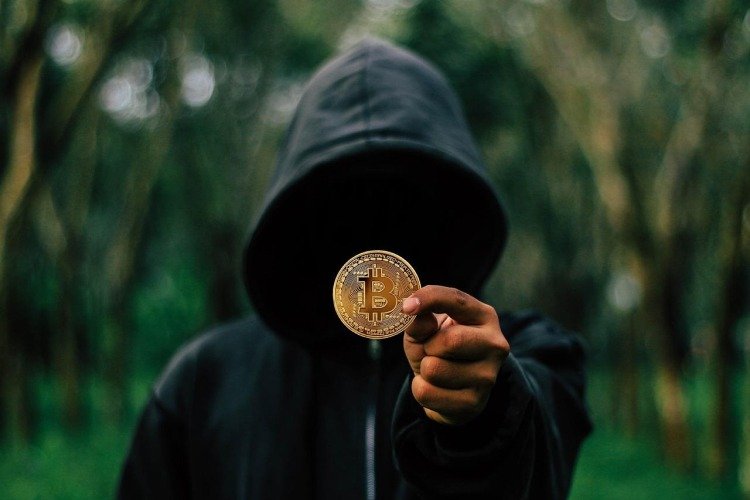Do Crypto Casinos Offer True Anonymity?

Cryptocurrencies have existed since 2009, when Bitcoin became the world’s first option, and it didn’t take long before these currencies entered the online gambling scene. The first crypto casino, called SatoshiDice, after the founder of Bitcoin, appeared in 2012.
Since then, crypto casinos have become increasingly popular, particularly among those who prefer to keep their online gambling habits secret. This was because these casinos commonly market themselves as fully anonymous, some not even requiring users to register an account to play.
This anonymity has attracted many gamblers to these platforms and even encouraged some to purchase crypto specifically to gamble with. At the same time these casinos began increasing in popularity, numerous countries, particularly the US, passed new laws and regulations to regulate the use of crypto.
Because of this, legitimate crypto casinos have been forced to comply with new laws, each of which degrades the anonymity they can offer. This degradation has led many to question whether or not crypto casinos still provide the true anonymity they once claimed.
Regulation and Laws
In the US, several laws address the use of crypto for gambling.
Bank Secrecy Act (BSA) of 1970
Passed in 1970, well before crypto existed, the Bank Secrecy Act (BSA) required financial institutions to work alongside and assist government and law enforcement agencies in detecting money laundering and actively helping to prevent it.
In 2013, the BSA was amended to incorporate cryptocurrencies, and the same requirements were extended to crypto exchanges. The most pivotal impact of this move was that all crypto exchanges must register with the Financial Crimes Enforcement Network (FinCEN). In turn, this means that exchanges must comply with Anti-Money Laundering (AML) and Know Your Customer (KYC) policies.
Considering that many gamblers use crypto exchanges to change funds from fiat currency to crypto, this means that the exchanges used must provide law enforcement with your details if requested.
FinCEN Cryptocurrency Guidelines
The Financial Crimes Enforcement Network (FinCEN) has released specific guidance on how any business dealing with crypto (including online casinos) needs to interact with the BSA mentioned above. Part of this guidance states that companies must comply with extensive KYC policies.
This guidance requires companies to document the full name, social security number, and physical address of anybody using crypto for payment. This is not limited to amounts over a certain amount and is applicable even if a crypto gambler deposits $1.
US Patriot Act
The US Patriot Act, passed after the horrific events of 9/11, expands the reach of the BSA by requiring companies to implement stringent KYC policies. Under this act, companies are required to verify customer identities rather than simply document them.
Additionally, under the Patriot Act, companies are responsible for monitoring customer behaviors and transactions for suspicious activities. If anything is noted, the company is liable to take mitigation measures and report it to the relevant authorities.
State-Specific Regulations
The above laws are all enacted at the federal level and apply to every state within the United States. However, many states have passed additional subsequent laws to regulate cryptocurrencies, online casinos, or both.
Crypto Casino Anonymity
While crypto casinos may have offered true anonymity when they first appeared, the above laws have rendered this anonymity moot. Any crypto casino operating within the US must be licensed and comply with the above rules.
If you are a gambler registering with a crypto casino, the same KYC process should apply, and you will be required to provide proof of your identity and physical address. This allows the casino to know exactly who you are and holds the site liable to pass that information on to law enforcement agencies should they have the relevant warrants.
Many believe that if a website (one that likely isn’t legally licensed within the US) doesn’t enforce KYC policies, this leads to anonymity. This belief, however, is not true, as all crypto casinos or gamblers need to use an exchange at some point. This usage occurs when the gambler converts money to fiat currency or when an exchange moves the money elsewhere.
In these circumstances, the exchange needs to record the personal information of the person who holds or receives the money. In each instance, customer information is recorded, verified, and available to the government under the BSA. As such, should a warrant be issued, exchanges must comply with providing the information to authorities.
International Crypto Casinos
With regulations in the US making the point of anonymity offered by crypto casinos moot, many who wish to keep their gambling secret may consider moving to offshore casinos. These operate outside of the US and are, therefore, not subject to the laws that strip away the ability to be anonymous.
However, this should be avoided at all costs. Not only are these casinos not licensed within the US, but they may not be licensed by any regulatory body. As such, should any dispute arise, there is no way to handle it outside of engaging with the casino itself, which may not result in the desired results.
Therefore, even if it means a loss of anonymity, it is always best to ensure that online gambling is legal in your location, that your chosen online casinos are properly licensed, and that you follow all required policies. Fortunately, many trustworthy crypto casinos exist, and the best can easily be found on casinos.com.
Conclusion
Although the allure of anonymity may be something many gamblers are looking for, in the pursuit of a safer online gambling and financial climate, the need for AML and KYC is prevalent. For gamblers, this means knowing that their activities are traceable, which should help to encourage safer and more responsible gambling.